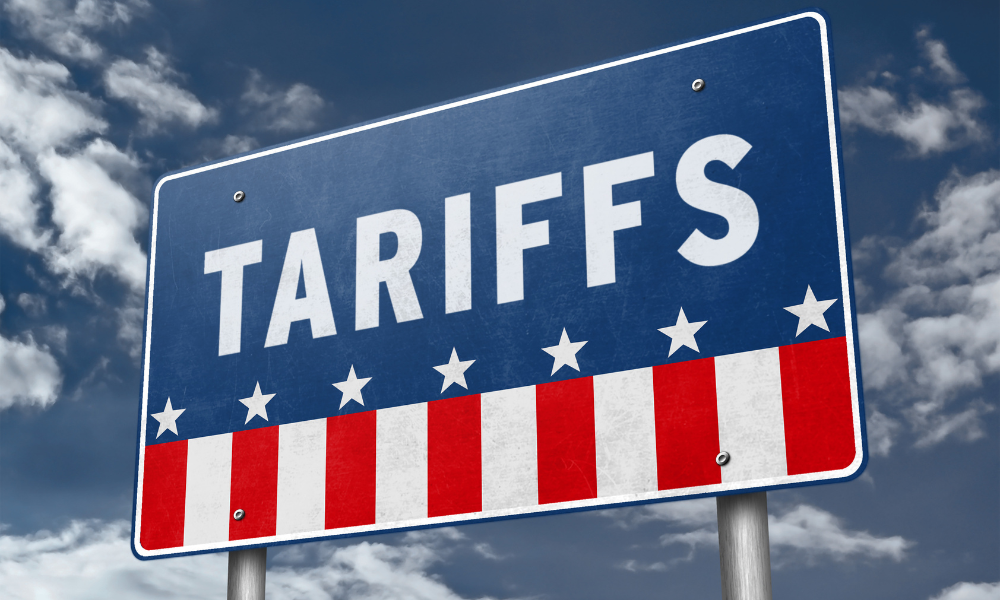2016 was a decisive year from a geopolitical perspective, but 2017 could be even more significant. How can advisors help their clients in these uncertain times?

2016 was, without doubt, a decisive year from a geopolitical perspective. But, as the year when last year’s events actually get enacted, 2017 could prove to be even more significant. Yes, markets recovered after Brexit and rallied after Trump’s election, but even the most esteemed economists are struggling to predict the long-term consequences of 2016’s unexpected events. So, how should a financial advisor react in the current environment?
“It’s an interesting time and there is certainly lots of information coming to light that can cause change,” says Chris Poole, financial advisor and managing partner of CWP Financial (Sun Life Financial). “However, in our case, we haven’t really changed the way we deal with our clients because we are in fairly regular communication with the people we serve. We try to help them understand that, when we’re strategizing from a longer-term perspective, there are uncontrollable events that occur.”
Regardless of how much experience one has in the markets, understanding how the investment landscape may look in 10 or 20 years is impossible. In the current environment, even predicting where we may be in two or three years is tough. But these factors do not eliminate the very real need for a long-term plan. “In times of market volatility, as we’ve experienced over the past couple of years, it’s important to consider the stage at which a client is in their financial plan, and whether they need immediate access to some of their cash,” Poole says. “If we have someone on the cusp of selling their business or starting retirement, we would initiate conversations in the years leading up to that event. Having those plans in place puts them in a position that’s more appropriate to their investor profile.”
Despite the constant speculation around the potential of a rollercoaster ride in 2017’s global financial markets, Poole remains unconcerned. “We’ve seen news like this many times before,” he says. “Every year there is a conversation that becomes the hot topic, but, over the course of time, markets have continued to prove valuable when people stick to their strategy and remain invested.”
“It’s always important to stay in touch with clients and really understand what people are trying to accomplish. That helps an advisor build strategies that are in line with helping meet expectations over the client’s investment timeline.”
Poole takes an open-minded approach when selecting the most suitable sectors and products in volatile markets. “We’re able to work with some wonderful fund managers who actively take care of the needs of the clients we serve: it’s the fund manager that’s deciding on the strategy,” he says. “ETFs can prove valuable where they’re appropriate, but at the end of the day, having open conversations with an advisor is most important thing for a client to do. That allows an advisor to profile the individual’s needs and make sure things are done according to their goals.”
Related stories:
Trump-drunk markets belie harsh reality, says Rosenberg
Manulife analysts foresee stepwise Fed hikes
“It’s an interesting time and there is certainly lots of information coming to light that can cause change,” says Chris Poole, financial advisor and managing partner of CWP Financial (Sun Life Financial). “However, in our case, we haven’t really changed the way we deal with our clients because we are in fairly regular communication with the people we serve. We try to help them understand that, when we’re strategizing from a longer-term perspective, there are uncontrollable events that occur.”
Regardless of how much experience one has in the markets, understanding how the investment landscape may look in 10 or 20 years is impossible. In the current environment, even predicting where we may be in two or three years is tough. But these factors do not eliminate the very real need for a long-term plan. “In times of market volatility, as we’ve experienced over the past couple of years, it’s important to consider the stage at which a client is in their financial plan, and whether they need immediate access to some of their cash,” Poole says. “If we have someone on the cusp of selling their business or starting retirement, we would initiate conversations in the years leading up to that event. Having those plans in place puts them in a position that’s more appropriate to their investor profile.”
Despite the constant speculation around the potential of a rollercoaster ride in 2017’s global financial markets, Poole remains unconcerned. “We’ve seen news like this many times before,” he says. “Every year there is a conversation that becomes the hot topic, but, over the course of time, markets have continued to prove valuable when people stick to their strategy and remain invested.”
“It’s always important to stay in touch with clients and really understand what people are trying to accomplish. That helps an advisor build strategies that are in line with helping meet expectations over the client’s investment timeline.”
Poole takes an open-minded approach when selecting the most suitable sectors and products in volatile markets. “We’re able to work with some wonderful fund managers who actively take care of the needs of the clients we serve: it’s the fund manager that’s deciding on the strategy,” he says. “ETFs can prove valuable where they’re appropriate, but at the end of the day, having open conversations with an advisor is most important thing for a client to do. That allows an advisor to profile the individual’s needs and make sure things are done according to their goals.”
Related stories:
Trump-drunk markets belie harsh reality, says Rosenberg
Manulife analysts foresee stepwise Fed hikes



